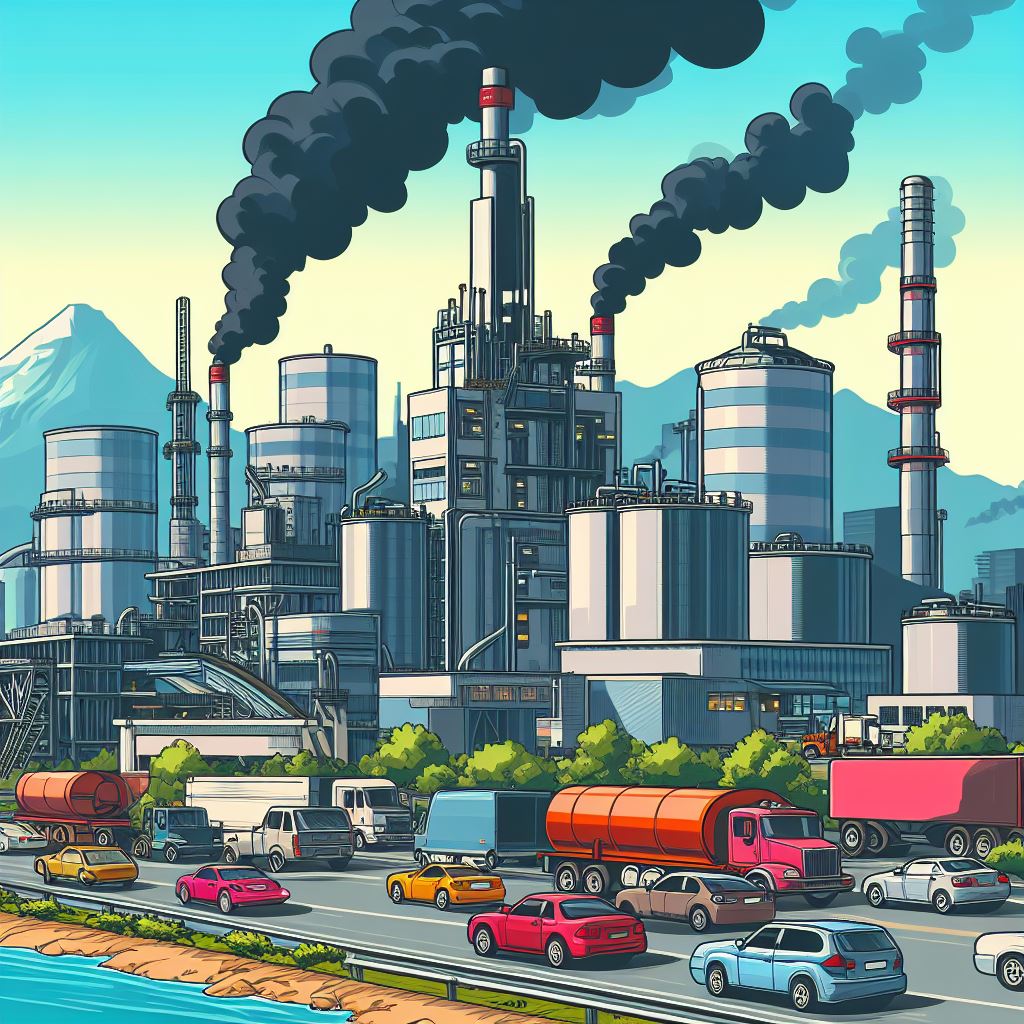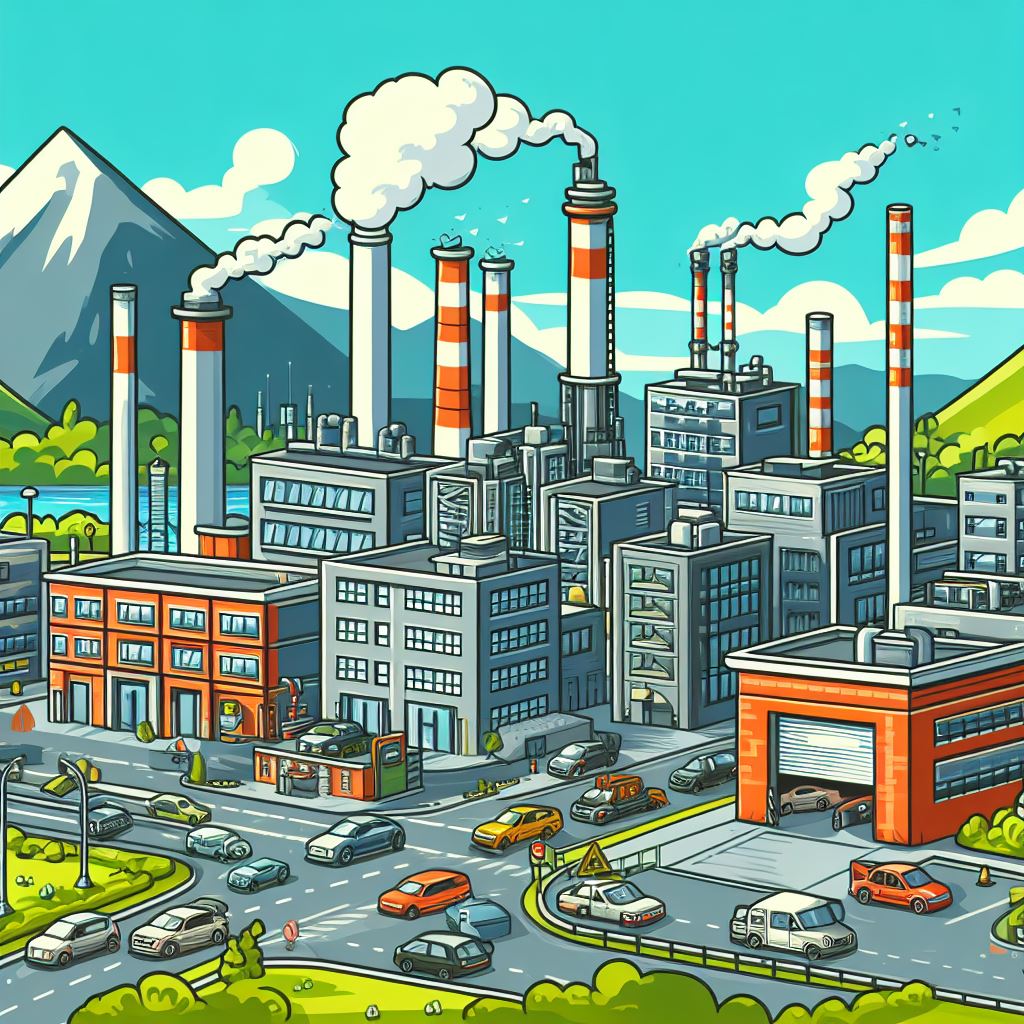Estimated reading time: 4 mins
In the tapestry of economic activities that form the foundation of any economy, basic industries are the robust threads that hold the potential to influence overall economic health. These industries are the initial drivers of economic activity, producing goods or services that are fundamental in nature. Often, they form the cornerstone of development for regions, ushering in growth and prosperity. This article delves into the concept of basic industries, exploring their role, characteristics, and the profound impact they have on both local and global scales.

The Role of Basic Industries in an Economy
Basic industries are pivotal in an economy because they supply essential products or services that are frequently exported outside of the local region, bringing in revenue from beyond its borders. These sectors often supply raw materials or fundamental services that are indispensable for other industries, thereby being the bedrock upon which secondary and tertiary sectors build upon. Moreover, basic industries are commonly associated with a multiplier effect, where the initial economic activity they generate spurs further economic development, creating jobs and stimulating investment in ancillary services and industries.
Examples of Basic Industries
Examples of basic industries include agriculture, mining, oil and gas extraction, and forestry. These sectors are often the first step in the supply chain, providing raw materials that are essential for manufacturing and other industrial processes. For instance, the mining industry supplies metals for the automotive and electronics industries, while agriculture provides food products that are processed and consumed globally. These industries are not just producers; they are the lifeblood of an economy’s trade balance, often forming the bulk of a nation’s exports.
Characteristics of Basic Industries
The characteristics of basic industries often include their large scale, capital intensity, and reliance on natural resources. They tend to be more vulnerable to global market fluctuations due to their ties to commodity prices. Additionally, basic industries are usually geographically bound, located where the natural resources are found, or where the primary economic activities began. This can lead to the development of specialized regions, such as mining towns or agricultural hubs. Their workforce is often highly specialized, requiring specific skills pertinent to the industry.
Basic vs. Non-Basic Industries
The distinction between basic and non-basic industries hinges on the markets they serve. While basic industries primarily produce goods and services for external markets, non-basic or service industries cater predominantly to the local market. Non-basic industries include retail, education, and healthcare, which serve the local population’s needs and are dependent on the spending within the economy. Basic industries drive growth by injecting new funds into the economy, whereas non-basic industries circulate money within the existing economy.
The Impact of Basic Industries on Local and Global Economies
Basic industries can dramatically alter the economic landscape. Locally, they can transform a region by attracting a workforce, encouraging infrastructure development, and increasing the standard of living. Globally, they contribute to the economic interdependence of nations through trade. Countries rich in a particular resource can become major exporters, influencing global markets and price settings. The health of these industries can affect global supply chains, as seen in instances where a shortage in one region can lead to price spikes worldwide.
Challenges Facing Basic Industries
Despite their significance, basic industries face numerous challenges, including resource depletion, environmental concerns, and the need for sustainable practices. As these industries often involve extraction and heavy use of natural resources, there is a constant pressure to balance economic benefits with environmental stewardship. Technological advancements present both opportunities for increased efficiency and challenges in workforce adaptation. Moreover, geopolitical factors and trade policies can dramatically impact these industries’ stability and profitability.
The Future of Basic Industries


The future of basic industries is closely tied to innovation and sustainability. As global demands for resources continue to grow, these industries are under pressure to evolve. Advances in technology, renewable energy, and sustainable practices are increasingly important for the long-term viability of basic industries. Additionally, shifts in global economic power and consumption patterns will likely redefine the roles and locations of these industries. The ability to adapt to these changes will determine the future landscape of basic industries.
Conclusion
Basic industries are more than just economic segments; they are the foundation upon which economies are built and sustained. Their influence on job creation, regional development, and global trade is immense. As we move forward, the importance of basic industries remains, but so does the need for them to innovate and operate sustainably. Understanding the role and dynamics of basic industries is crucial for policymakers, investors, and the public as we navigate the complexities of a globalized economy.
In conclusion, basic industries represent a critical element of economic growth and stability. They are the engines that power the beginning of the economic activity cycle, setting off a chain reaction that benefits multiple sectors. As we face environmental, technological, and economic shifts, the adaptability of basic industries will be tested. It is essential for the continued prosperity of any economy that these industries not only survive but thrive, evolving to meet the challenges of tomorrow while supporting the economies of today.??
